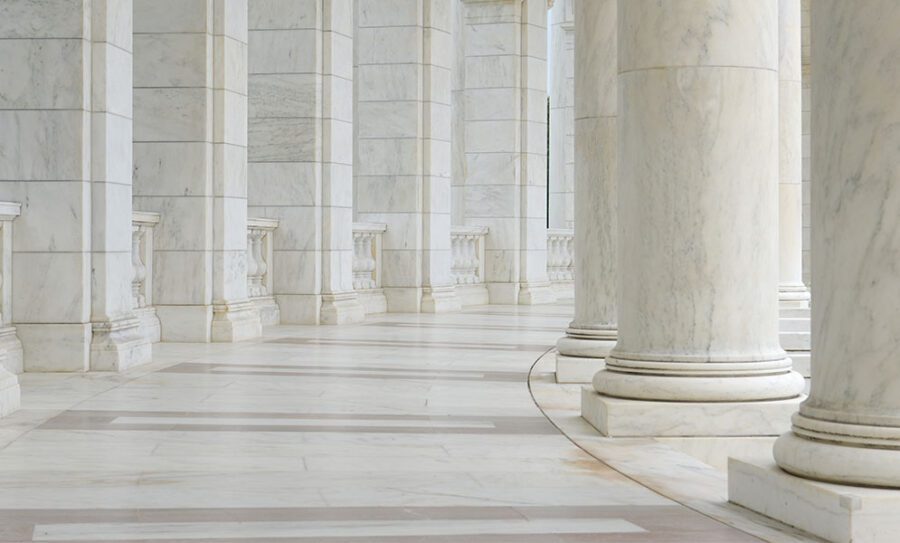Rethinking Discipline
“Small disciplines repeated with consistency every day lead to great achievements gained slowly over time.”
— John C. Maxwell
When we hear the term ‘discipline,’ our thoughts are often filled with negative feelings or a suppressive connotation—restriction, punishment, or even shame. In reality, these associations could not be further from the truth and strip the word of the beauty God created it for and the freedom that it bestows upon its practitioners.
Scripture speaks directly to this truth. In Hebrews, we are given a powerful insight into the transformative nature of discipline:
“No discipline seems pleasant at the time, but painful. Later on, however, it produces a harvest of righteousness and peace for those who have been trained by it.” —Hebrews 12:11
This passage outlines what so many of us often experience: discipline begins in discomfort. In society’s pursuit of instant gratification, the future freedom and peace that discipline brings us can easily take a backseat to self-centered ideologies and the “you only live once” (YOLO) campaign. Like a seed planted and nurtured, the fruits of that labor—peace, wisdom, maturity—are revealed and celebrated at a future time.
Discipline and Its Ripple Effect
As we attempt to practice discipline in our daily lives, we need to ponder and explore the ripple effect of both successful practice and a lack of discipline. Both carry a weight that can tip the scale favorably or unfavorably. Scripture details the importance and impact of discipline in our personal relationship with Christ and His Word, our children, our health, our wisdom, and our morality.
Biblical discipline in these aspects is not oppressive but freeing! Sometimes, one may argue it is physically, emotionally, and spiritually painful. But it is in these moments that we must look to our Creator and His promises for solace and peace. Discipline transcends far beyond the moment in which it is practiced and utilized.
The question we must ask ourselves is not whether discipline is hard, but whether the outcome is worth it. And according to God’s Word, it absolutely is.
Building the Bridge: From Ownership to Freedom
The Classical Conversations Challenge B program is a pivotal point in a student’s journey, positioned intentionally between Challenge A’s focus on ownership and Challenge I’s emphasis on freedom.
Challenge B calls students and families to apply discipline to their education. It’s here that students begin learning not just how to take responsibility for their work, but also how to delight in the work itself. They discover that joy doesn’t come in spite of discipline, but because of it.
Discipline is the bridge between ownership and freedom. Without discipline, ownership becomes overwhelming, and freedom becomes chaotic. But when discipline is practiced and embraced, it becomes the structure that supports true liberty—academically, personally, and spiritually.
Educational Liberty vs. License: Why Discipline Matters
Our founders understood that enduring freedom requires individual restraint, moral responsibility, and civic virtue—all facets of discipline. Liberty without discipline becomes license, and license leads to chaos, not freedom.
Benjamin Franklin wrote, “Only a virtuous people are capable of freedom. As nations become corrupt and vicious, they have more need of masters.”
This principle holds true not just for nations but also for families. As we embrace the calling to educate our children independently, we must recognize that freedom in education is not the right to do whatever we want, whenever we want, without consequence. Freedom in education is the responsibility to choose to do what is right within a right framework of order, self-control, and God-given stewardship.
Liberty Over License: The Guardian of Educational Freedom
Educational freedom depends on the intentional discipline of parents and students. Homeschooling is not simply a rejection of institutional control. It is the deliberate pursuit of something better: an education rooted in truth, cultivated with purpose, and practiced in freedom.
Discipline is the engine that drives this pursuit. It empowers families to set goals and follow through, to persevere when lessons get hard, and to uphold consistency in the face of distraction or doubt. Without discipline, our independence becomes unstable, our choices reactive, and our outcomes uncertain. Eventually, that instability invites external control, whether through state mandates, curriculum overreach, or the erosion of parental rights and educational autonomy.
But when we anchor our freedom in discipline, we build something lasting. We protect the sacred space of our home education. We model integrity for our children. And we lay a foundation that allows future generations to flourish.
In this way, discipline is not a burden on educational liberty—it is its very foundation.
Practicing Discipline: Foundations for Educational Freedom
Finding Your Educational “Why”
Understanding discipline’s spiritual and philosophical importance is only part of the journey. The real work begins when we translate this understanding into the everyday patterns of our homes and hearts. For families pursuing educational independence, discipline is both a posture and a practice. It shows up in rhythms, routines, and relationships. It guides how we respond to difficulty and how we pursue growth.
As we begin this journey, we need to understand the “why” behind our decisions. We must anchor discipline to purpose. And when we do, discipline stops feeling like restriction and starts feeling like stewardship.
Building Effective Learning Routines
When we have our “why,” we can begin building rhythms and routines. Instead of rigid checklists that may crumble when the day doesn’t go exactly as planned, build habits and traditions that bring order and joy without the stress and disappointment that often comes with an incomplete checklist.
Modeling Discipline for Children
Children learn more from what we live than from what we say. Let your children witness your own discipline: time management, faithful learning, and spiritual habits. Discipline is more caught than taught. And when modeled for our children to see and multiply, it builds a resilient character within them that extends far beyond their schooling.
Disciplined Correction and Restoration
We must also practice discipline in our correction. As we correct our children, the goal of restoration should be at the forefront of our minds. When we remember God’s discipline in our own correction, we can emulate this character and lead, correct, and restore with the same grace extended to us.
Protecting Educational Rights Through Discipline
Freedom in education is a precious and fragile gift. Families must take an active role in protecting their right to direct their children’s learning. Know your rights, stay informed, and model civic responsibility. Freedom unguarded becomes freedom lost.
Ultimately, the goal of discipline is not mere behavior management. It is to raise individuals who are truly free—people who can govern themselves, serve others, and live in alignment with truth. Discipline equips children to live with purpose, responsibility, and joy.
Conclusion: A Harvest of Righteousness and Peace
As Hebrews tells us, discipline is not just a moment but a mission. As parents and educators, when we embrace discipline not as drudgery but as discipleship, we begin to see its fruit: maturity, resilience, wisdom, and peace.
This is the legacy we are building—not just educated children, but free people. The kind of freedom that isn’t driven by impulse or ideology, but formed through truth, responsibility, and virtue. The kind of freedom that endures.
Our homes are the training ground for this pursuit. In choosing discipline, we are choosing freedom, not just for today, but for the generations that follow.
So, let us not shy away from the hard work of discipline. Let us take joy in its purpose, trust in its promise, and walk in its practice.
Because the bridge from ownership to freedom is not just built for our children; it’s built by us.
Read Reese’s other article, The Value of Local Government.





